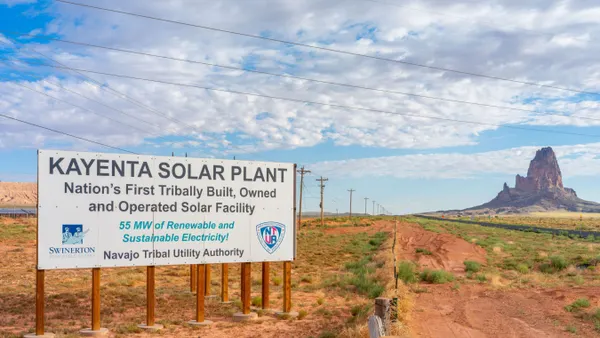Dive Brief:
- All four Federal Energy Regulatory Commissioners testified before a House subcommittee on Wednesday, taking a wide range of question about the agency's oversight and action on issues ranging from cybersecurity to state resource mixes.
- FERC Chairman Neil Chatterjee told the House Energy and Commerce Committee's Subcommittee on Energy that the commission continues to struggle with "complex legal questions" regarding aggregated distributed energy resources (DERs), and it is not clear when a final rule to better incorporate them into markets may be forthcoming.
- The commission also faced questions regarding capacity market rules for PJM Interconnection, ahead of the regional operator's August auction. FERC is considering whether to approve the grid operator's rule re-write, but that process is leaving little time for participants to prepare.
Dive Insight:
Prohibited by commission rules, FERC's regulators could give lawmakers few specifics when pressed on the commission's progress regarding DER integration and PJM's upcoming auction. Chatterjee told lawmakers that the commission has the information it needs to rule on DER integration, but regulators continue to "wrestle" with legal issues.
FERC held a technical conference in April 2018 on aggregated DERs, and the commission is "currently considering the record as we determine how to move forward," Chatterjee said.
This is not the first time lawmakers have pressed FERC for action. In February, Congressional Democrats sent the commission a letter urging regulators to finalize the DER rules. The commission approved rules for energy storage participation in February 2018, but has yet to finalize those.
And with PJM's capacity auction just two months away, lawmakers pressed for more certainty.
Chairman of the full House committee, Democrat Rep. Frank Pallone Jr, was present for the subcommittee's hearing. Pallone represents New Jersey, which participates in the PJM market.
"PJM participants are currently left in the lurch of both an old and new capacity market design," Pallone said. "The result of this uncertainty is higher electricity bills. It is vital that we figure this out immediately."
Rep. Mike Doyle, D-Pa., voiced similar concerns, saying if a rule is published just before the auction it wold not "give auction participants enough time to adjust," or an auction could be held with rules FERC has already rejected. "That raises lots of concerns and uncertainty," Doyle said.
Commissioner Cheryl LaFleur said she is "deeply, deeply troubled by the delay" and continues to press the commission for action.
But it is not clear there is an immediate solution.
Commissioner Richard Glick pointed out that "companies can't make investments without knowing where the government is going .... it is unclear on how the auction can go forward without action from FERC."
Cybersecurity issues were raised in the hearing, and in particular with regard to natural gas infrastructure — which falls to the purview of the Transportation Security Administration.
Glick said he has "serious concerns" about TSA's ability to protect pipelines, and LaFleur said Congress should consider more security requirements for gas infrastructure. "A structure with some teeth to it would be very helpful," she said.
Chatterjee said the commission is still working on grid resiliency issues, and is considering a task force to review fuel security issues with states. In 2018, the commission rejected the idea of subsidies for coal and nuclear plants, but opened a docket to consider grid resilience.
"States rights and the markets are colliding," Chatterjee told the subcommittee. "We want these markets to succeed ... but state actions are impacting the markets and we are trying to figure out how to sort through that. It has proven to be very challenging."














